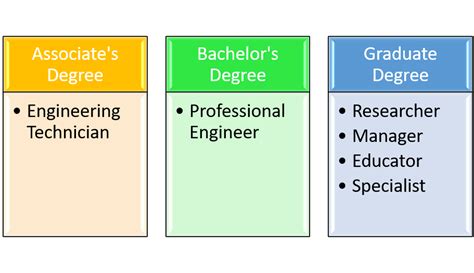Are you passionate about cars and eager to pursue a career in the automotive industry? Becoming a mechanic can be a rewarding path if you possess the right skills and qualifications. But what degree do you need to be a mechanic? Let’s explore the educational requirements and career prospects in this field.

Associate’s Degree: The Foundation
The most common educational path to becoming a mechanic is to obtain an Associate’s Degree in Automotive Technology. This two-year program provides a comprehensive foundation in automotive repair and maintenance. Students learn about:
- Engine performance
- Electrical systems
- Transmission repair
- Brake systems
- Suspension and steering
Associate’s Degree programs are offered at community colleges and vocational schools across the country. The curriculum typically includes a combination of classroom instruction, hands-on labs, and real-world experience through internships or apprenticeships.
Bachelor’s Degree: Advanced Skills and Leadership
For those seeking a more advanced education, a Bachelor’s Degree in Automotive Technology can offer additional skills and career opportunities. This four-year program builds upon the foundation of an Associate’s Degree and provides a deeper understanding of automotive engineering, diagnostics, and management. Graduates are prepared for roles such as:
- Automotive engineer
- Service manager
- Collision repair specialist
- Automotive instructor
Bachelor’s Degree programs are available at universities and technical colleges. The curriculum includes courses in:
- Advanced diagnostics
- Engine performance analysis
- Vehicle emissions control
- Automotive safety systems
- Leadership and management
Certifications: Enhancing Credibility and Expertise
In addition to formal education, obtaining automotive certifications can significantly enhance your credibility and employability. Industry-recognized certifications demonstrate your competence in specific areas of automotive repair, such as:
- Automotive Service Excellence (ASE)
- National Institute for Automotive Service Excellence (NIASE)
- Automotive Youth Educational Systems (AYES)
Certifications are offered by various organizations and can be obtained through testing or training programs. They validate your skills and knowledge, making you a more attractive candidate for employers.
Career Prospects: A Growing Field with High Demand
The demand for skilled mechanics is expected to remain strong in the coming years. According to the U.S. Bureau of Labor Statistics (BLS), employment of automotive mechanics is projected to grow 4% from 2019 to 2029. This growth is attributed to the increasing complexity of vehicles and the growing number of vehicles on the road.
Mechanics can work in a variety of settings, including:
- Automotive repair shops
- Dealerships
- Fleet maintenance facilities
- Government agencies
Salary Expectations: A Rewarding Career Path
The salary for mechanics can vary depending on their experience, location, and industry. According to the BLS, the median annual salary for automotive mechanics was $47,290 in May 2021. The top 10% of earners made more than $78,000, while the bottom 10% earned less than $29,350.
Conclusion: A Path to Success
Becoming a mechanic requires a combination of education, training, and experience. An Associate’s Degree in Automotive Technology provides a solid foundation, while a Bachelor’s Degree offers advanced skills and leadership opportunities. Obtaining industry certifications can enhance your credibility and employability. With a growing demand for skilled mechanics and a rewarding career path, pursuing a career in the automotive industry can be a fulfilling choice for those passionate about cars.
